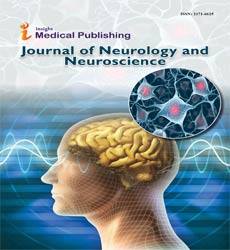Abstract
Evaluation of Combined Effects of Insomnia and Stress on Sleep Quality and Sleep Duration
Objectives: Insomnia and Stress impacts both neural development of central nervous structures, and they are involved in many clinical outcomes like sleep disorders, depression, cognitive impairment and other sleep disorders. Few authors investigated accurately relationship between implications of these two troubles above, and occurrence or complications of sleep quality. It has been showed that, the quality and the duration of sleep depended strongly on the lifestyle and the personal environment. Knowing that, insomnia and stress are a permanent part of our daily life, a complete exploration of their combined effects on our sleep quality and sleep duration may move forward the general approach of therapist about sleep impairment. Indeed, a complete evaluation should be made continuously on a brain to record all the waves fluctuations related to sleep, but an early detection of factors influencing these changes in cerebral wave may be equally interesting. To our knowledge, none made a clear statement on the combined effects of insomnia and stress on the Sleep Impairment events. The aim of this study is to explore how insomnia and stress together affects sleep quality and sleep duration (SD), in the general population is associated in simultaneous with sleep components, psychological stress, depression, anxiety, well-being, addiction and global health of participants; and if it is also influenced by the sociodemographic profile of each subject.
Methods: The present study was led by the questionnaire Mental Health Profile of Etindele (MHPE) incorporating McNair test, and incorporated sub-score for sleep components, psychological stress, depression, anxiety, well-being, addiction, family history of the participant and his family. All this clinical and environmental measure were associated with sociodemographic profile of each participant, to address our question Our results showed that the stress level and sleep duration are comparable per gender and family history.
Results: Sleep quality was correlated strongly with decrease of clinical parameters, and the level of stress. the results showed that lack of sleep combined with a low global score to MHPE are strongly correlated with sleep impairment, while score of memory and attention decreased with insomnia. Insomnia is strongly correlated with physical activity.
Conclusion: Insomnia and stress together speed up decline of memory and sleep impairments.
Author(s):
Faustin Armel Etindele Sosso, Okito Nakamura and Mitsu Nakamura
Abstract | Full-Text | PDF
Share this

Abstracted/Indexed in
- Google Scholar
- Open J Gate
- Genamics JournalSeek
- The Global Impact Factor (GIF)
- China National Knowledge Infrastructure (CNKI)
- Directory of Research Journal Indexing (DRJI)
- WorldCat
- Proquest Summons
- Scientific Journal Impact Factor
- Secret Search Engine Labs
- Euro Pub
Open Access Journals
- Aquaculture & Veterinary Science
- Chemistry & Chemical Sciences
- Clinical Sciences
- Engineering
- General Science
- Genetics & Molecular Biology
- Health Care & Nursing
- Immunology & Microbiology
- Materials Science
- Mathematics & Physics
- Medical Sciences
- Neurology & Psychiatry
- Oncology & Cancer Science
- Pharmaceutical Sciences

